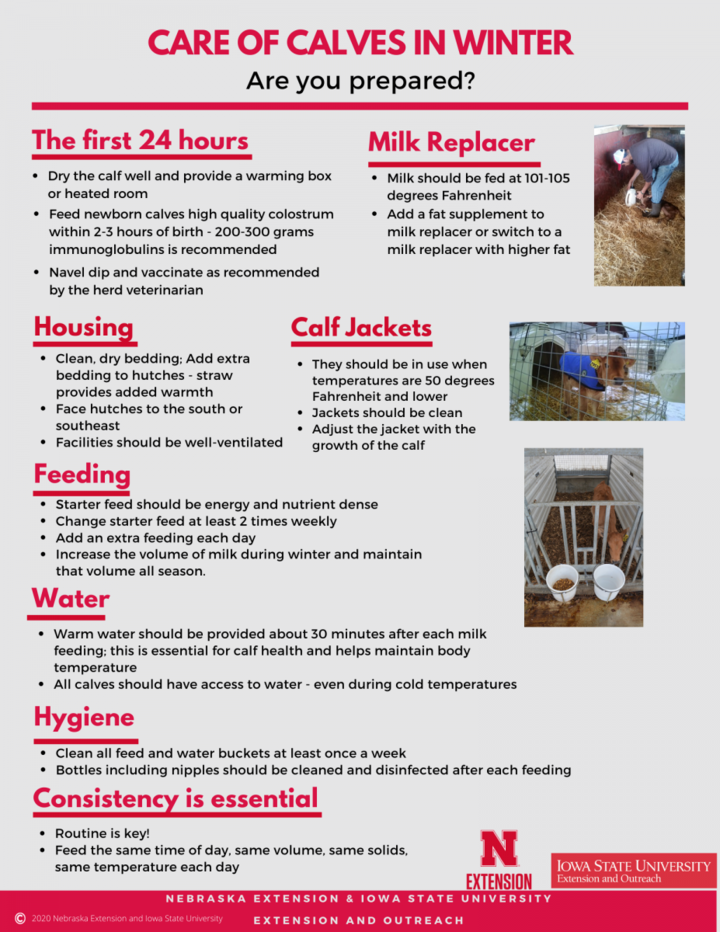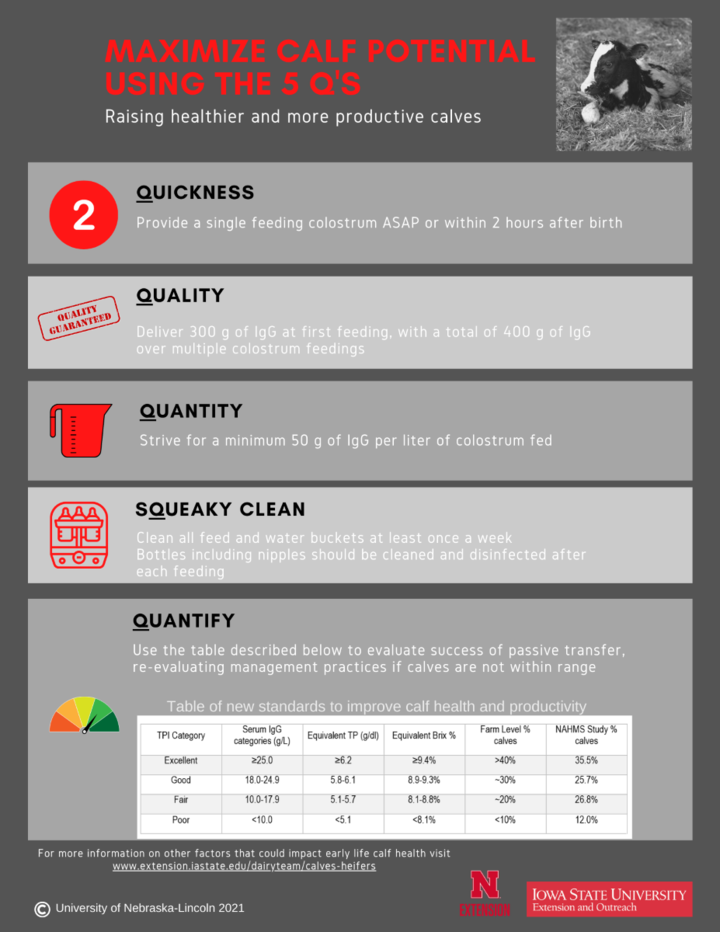NebGuides
How to Reduce Heat Stress in Dairy Cattle (pdf)
How to Body Condition Score Dairy Animals (pdf)
Managing Dairy Cattle for Cow Comfort and Maximum Intake (pdf)
Developing Dairy Heifer Rearing Expenses (pdf)
The Genetics and Management of Sound Feet and Legs in Dairy Animals (pdf)
How to Maximize Income by Managing Days Dry (pdf)
Calf Resources
Calf Care and Handling Video Series (in English)
Monitoring Hygiene in Calf Feeding Equipment (pdf)
Newborn Calf and Colostrum Management (pdf)
Quick Facts and Colostrum Reminders (pdf)
Spanish Resources
Calf Care and Handling Training Video Series (in Spanish)
Manejo, estrés y miedo en becerros.pdf (Calf Handling)
Nutrición del becerro.pdf(Calf Nutrition Basics)
Inspección de la higiene en los instrumentos para la alimentación de becerros.pdf (Monitoring hygiene in calf feeding equipment)
Manejo y cuidado de becerros recién nacido y calostro.pdf (Newborn calves and colostrum management)
Cómo reducir el estrés calórico en el ganado productor de leche (How to Reduce Heat Stress in Dairy Cattle) (pdf)


Calf care and handling videos now available online
Kim Clark, Nebraska Dairy Extension Educator
Having properly trained employees is critical for the health, growth and development of dairy calves and for the profitability and sustainability of a dairy farm. A new series of resources is available through Iowa State University Extension and Outreach and the University of Nebraska-Lincoln to provide training in calf management including; newborn calf care, colostrum management, animal handling, automatic calf feeder management and hygiene and sanitation. Each of the videos are less than 3 minutes in length, utilizing video demonstration of on farm practices to emphasize key calf management practices.
Former Graduate Students and Current Colleagues Partner on Extension Programming
Kim Clark, Dairy Extension Educator
Two years ago, two former UNL Animal Science graduate student colleagues, Kim Clark (M.Ag. ’09 from UNL) and Hugo Ramirez-Ramirez (M.S. ’11 and Ph.D.’13 from UNL), began discussing the needs of dairy producers in Nebraska and Iowa. Clark, a dairy extension educator at the University of Nebraska and Ramirez-Ramirez a dairy extension specialist at Iowa State University both attended graduate school together under the direction of Dr. Paul Kononoff, a University of Nebraska-Lincoln dairy extension specialist. Jennifer Bentley, a dairy field specialist at Iowa State University also joined Clark and Ramirez-Ramirez on the team.
The Temperature to Thaw Colostrum is Just as Important as Colostrum Itself
Kim Clark, UNL Dairy Extension Educator
It is no secret that colostrum provides the antibodies a calf needs to build immunity. The antibodies, specifically called immunoglobulins in colostrum, are absorbed in the calf’s small intestine in the first few hours of life. After the first four hours of life, the absorption of immunoglobulins decreases. Therefore, it is important that newborn calves receive colostrum within four hours of birth.
Feeding the Preweaned Calf
Dr. Peter Erickson, Dairy Specialist, University of New Hampshire
The calf care you provide in the first few hours and days of a calf's life will have a major impact on growth and production for the next several years.